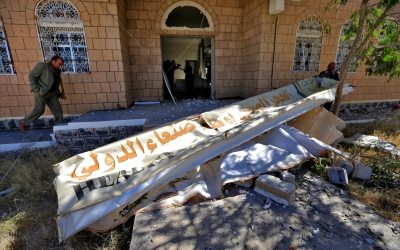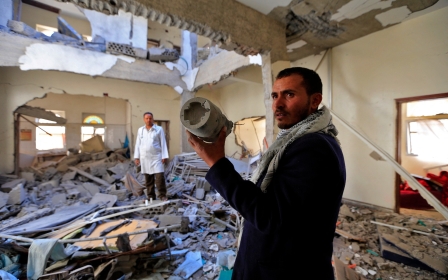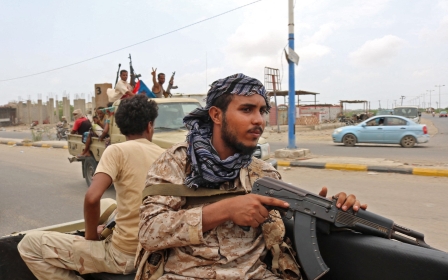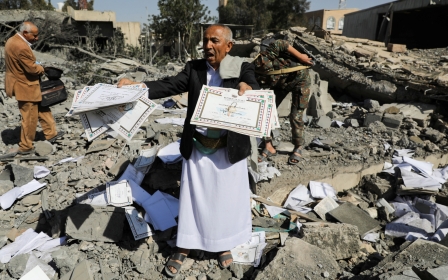Yemen: UN urges government to allow entry of new equipment for Sanaa airport
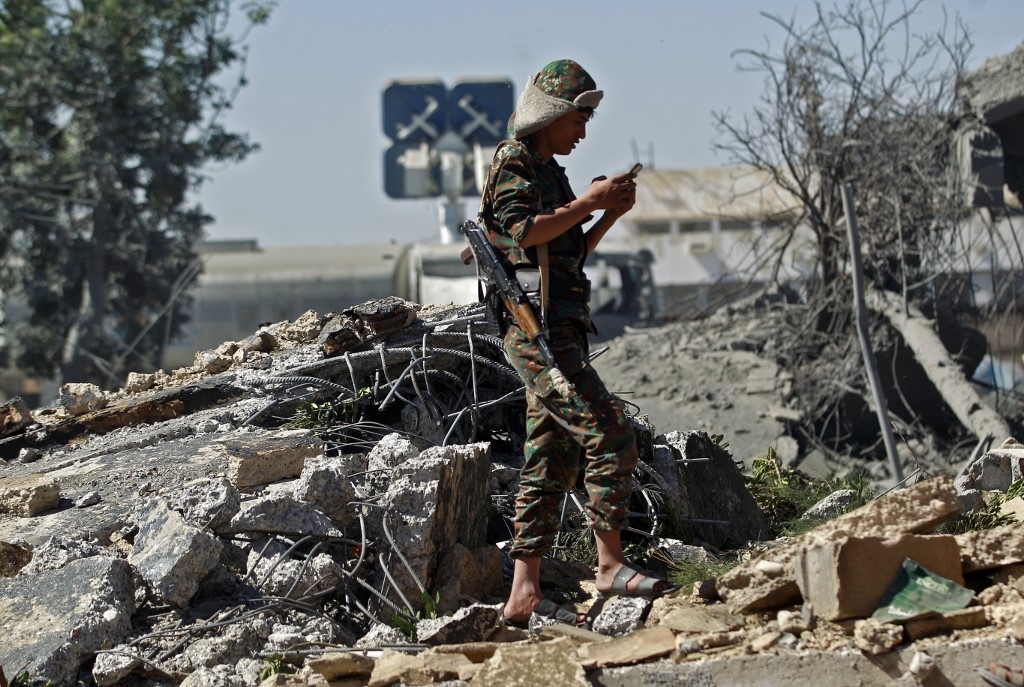
The United Nations has called on Yemen's internationally recognised government to allow the entry of communications equipment to the airport in the rebel-held capital, Sanaa.
Yemen has been wracked by civil war since 2014, pitting the government, which is supported by a Saudi-led coalition, against the Iran-backed Houthis, who control much of the north.
Flights into the capital have been largely halted by a Saudi-led blockade since August 2016, but there have been exemptions for aid flights, which are a key lifeline for the population.
But Sanaa airport was closed for several days in December after the coalition pounded it with air strikes, accusing the Houthis of using it to launch missiles and drones at Saudi Arabia. The air strikes reportedly destroyed communications and navigation capabilities.
"We said that we need equipment, but the [coalition] started to bomb it instead of sending the required equipment," a source in the civil aviation authority told Middle East Eye on 22 December, speaking on condition of anonymity.
"The air strikes targeted the tarmac and several buildings in the airport, including the customs department, and a fire broke out," he said.
The Houthis reopened the airport on 27 December.
"Closure of the airport to humanitarian flights severely undermines aid operations," the UN humanitarian coordinator for Yemen, David Gressly, said in a statement on Friday, according to AFP.
"I remain deeply concerned about any further disruptions."
Gressly welcomed the airport's reopening, but said communications equipment there had been found to be faulty.
"The Civil Aviation and Meteorology Authority (CAMA) in Sanaa deems the equipment obsolete," he said.
'Potentially dangerous situation'
According to Gressly, "UN humanitarian flight crews have reported at least 10 instances in which they were unable to contact the air control tower... or had unclear communications".
In order to rectify "a potentially dangerous situation," he urged Yemen's government to allow the import of new equipment.
He said the Saudi-led coalition "has not authorised the transfer, despite several requests from the United Nations, citing the need for Government of Yemen approval".
"The equipment is needed to ensure the safe use of Sanaa airport for humanitarian flights and, by extension, the continuation of the aid operation in Yemen," Gressly said.
'UN humanitarian flight crews have reported at least 10 instances in which they were unable to contact the air control tower'
- David Gressly, UN coordinator for Yemen
Saudi Arabia and its allies, most prominently the United Arab Emirates, intervened in Yemen in 2015 after the Iran-aligned Houthi movement ousted the internationally recognised government of President Abd Rabbuh Mansour Hadi from Sanaa.
The coalition immediately began a bombing campaign aimed at rolling back Houthi gains.
In recent years, Houthi forces have stepped up drone and missile attacks on Saudi Arabia.
A UN Development Programme report last month said the war will have claimed 377,000 lives by the end of 2021, through both direct and indirect impacts.
For months, the two sides have been fiercely fighting around the city of Marib, east of Sanaa, where Houthi forces are seeking to take over key Yemeni government strongholds.
Still, while the Houthis have made major advances during the past couple of months, recent Saudi-led air strikes have so far managed to stem the Houthi advance.
The UN has described the situation in Yemen as the world's worst humanitarian crisis.
Middle East Eye delivers independent and unrivalled coverage and analysis of the Middle East, North Africa and beyond. To learn more about republishing this content and the associated fees, please fill out this form. More about MEE can be found here.


